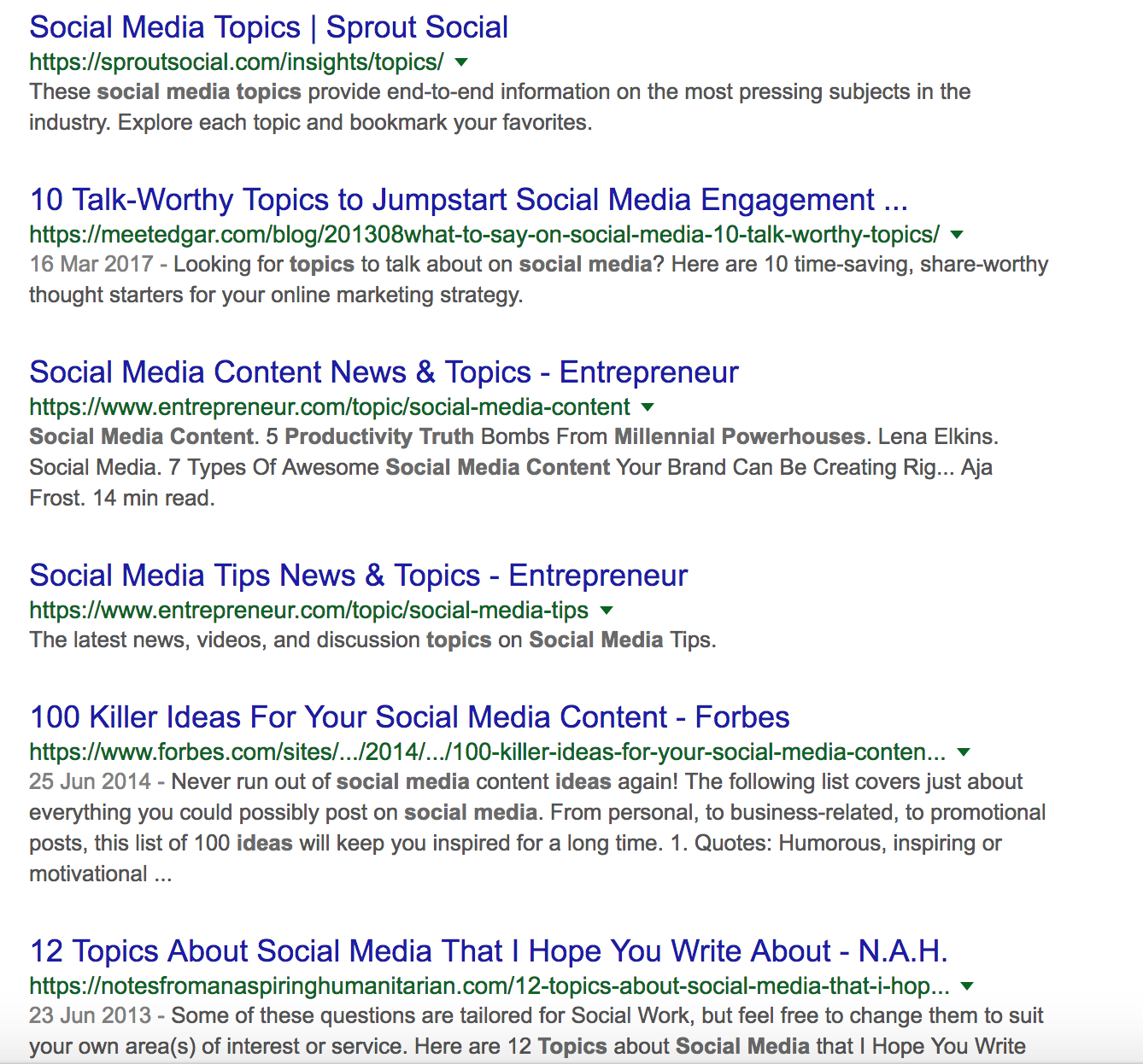HOW TO COME UP WITH AMAZING WEBSITE CONTENT TOPICS
When I started blogging back in 2013, the biggest part that scared me the most was running out of ideas for my website content.
I knew I had topics that I could write about. But nothing really stood out to me as a firm idea at that time.
I saw so many other bloggers who seemed really focused in their lane, and back then, I thought the word “niche” meant that I had to be blogging about a specific topic. Because I wasn’t, I was convinced that my blog would never become successful.
Have you been there?
I mean, we see so many people preaching that you have to have a niche or else you’re never going to make it. Not to mention all the noise and ideas that are already out there making you question everything you do so you want to pack it in altogether.
I’ve been there.
And you want to know something?
That’s not the only way to pick a niche.
Actually, it’s going to be so much more beneficial for you AND easier for you to come up with website content ideas if you base your niche around your audience.
Don’t get it?
Keep scrolling.
HOW TO COME UP WITH WEBSITE CONTENT IDEAS
I just want to be really transparent with you for a second.
I get how noisy the online world is right now. There are so many brands, so much content and so many people doing what they do, that you can believe a lot of different messages which are just going to leave you feeling confused. This means you won’t be able to take any action.
But get your head around this...
I didn’t really know what my purpose was when I first started blogging (for those of you who don’t know, it was a lifestyle blog).
And while it was such a challenge setting up a blog from scratch AND a big step out of my comfort zone doing this in the first place, I started my blog for the same reason a lot of people did. To document my life.
Once I got into the swing of things, gained more experience both professionally and personally, I realised I my purpose was to help people build their own online presence. Only in a lot less time than it took me.
I loved teaching people in minutes what took me months to learn.
I loved getting responses from people saying, “this helped me so much!”
That feeling of “yes! I’ve made a positive impact on someone’s life!” when you help them see results.
And that sense of contentment when you start building a community filled with your target reader (oh hey 😉 ).
So guess what? You don’t need to base your blog around a particular niche topic or industry.
But what do you do instead? Doesn’t it make it harder to come up with website content ideas that way?
Actually, it’s easier. And it all starts with…
KNOWING WHO YOU’RE TALKING TO
One of the biggest reasons why it can be better NOT to base your blog around a certain topic is because you’re not focused on an industry, which gives you a lot more room to play with.
Why is that important?
Because that way, you can take a different mindset. Instead of focusing on website content ideas in that industry, you focus on website content ideas in that industry that your target audience wants to read.
So how do you figure out who your ideal reader is?
Your first step:
WRITE IT ALL DOWN
You need to at least try and get all of your ideas out of your head.
Let me break it down for you a bit more.
In order for you to start coming up with good website content ideas, grab a notebook or open up a Google Doc and start writing down:
Everything you’d love to write about
Everything you CAN write about (based on your knowledge/skills/experience
So for me, for instance, this could look like:
Blogging
Social media
Twitter
Instagram
Facebook
Pinterest
Instagram Stories
Time management
SEO
Productivity
Branding
Self-promotion
Self-confidence
Multi-channel strategy
Email marketing
Running a business
Motivation
The list goes on!
Don’t be afraid of a long list. What you want to do is be as specific as you can and write down all the possibilities.
And don’t worry if you’re not a huge fan of some of these topics. You’re likely not going to write about them all.
Trust me…
Once you start getting deeper into what it is you want your blog to be about and you communicate more with your target reader, you’ll start to get a better picture of exactly what you should and shouldn’t be talking about.
So once you’ve got that list, what happens next?
THINK OUTSIDE THE BOX
Now you’ve listed your specific ideas, I want you to try and group them together into umbrella categories.
Using your list that you just created, start looking for common themes based on broader topics.
For instance, I could break my list down like this:
Productivity
Time management
Motivation
Self-confidence
Social Media
Twitter
Instagram
Facebook
Pinterest
Instagram Stories
Online Presence
Blogging
Branding
Self-promotion
Multi-channel strategy
Email marketing
Running a business
You can see that I’ve got three clearly defined topics there.
Next…
CONSIDER ABOUT YOUR CATEGORIES
Now that you’ve those broader ideas sorted, we’re going to use those to really define your categories.
In order to help you do this you can do some good old searching.
There’s a great way you can do this and you can use both Google and Pinterest:
Pick either a broad category or a sub-category from your list - I’m going to use “social media”
Put the words “social media topics” into the search bar
What this does is display results from websites that are - you guessed it - FULL of social media topic ideas.
When you’re looking at this on Google, it’s best to always set the results to the “past year”. This is how to do that:
Click on “search tools”
In the small dropdown menu choose “any time”
Wait for the dropdown menu to appear, then choose “past year”
Now you can start clicking on articles and writing down your different ideas under your specific topics.
Some ideas I could take would be:
Coming up with a social media strategy
How much is too much self-promotion?
I would add these under the relevant sub-topic and then continue to do this until I feel like I’ve got a strong list of ideas.
Once you do that, you can then use a keyword research tool to see whether your target reader is actually talking about the topic and whether it’s worth writing about.
When you do that, you can bold the ideas you want to keep and leave the ones that you need to do some more work on.
Once you’ve got your list, you can move onto the next step…
MAKE A NOTE OF ALL OF YOUR IDEAS
So now you’ve got your categories, subcategories and a list of words and phrases, it’s time to put these into a bit more detail into a tool where you can store all your ideas.
We’ve been through the validation stage which is a great step to take. Now you want to keep track of all your ideas so you can see which ones you’ve used and which ones you’ve got left to work on.
I’ve done a full video tutorial on this, but my favourite tool for doing this is Evernote.
Once you’ve got an account set up with Evernote, do this…
Create a notebook called “website content ideas” that can be used to store all of your ideas.
Then you want to create separate notes within that notebook for each of your core main categories. So my notes might be called “online presence”, “social media”, and “productivity”.
From there, you then start filling your note with your website content ideas related to that category.
It’s that simple!
But once you’ve got your idea and you’re ready to write a blog post, it can be tricky to figure out how you’re actually going to write it.
There are loads of different ways you can write blog posts - some are definitely more effective than others.
Want to know the top four ways to write effective blog posts and where your idea may fall into that list?
Grab your FREE video lesson (it’s less than 15 minutes long!) that will walk you through the 4 most effective structures for writing your blog posts (examples included). Use it to help you with your next blog post and let’s see how effective you can become at writing website content and smashing out new ideas for your brand!
WATCH THE BLOG POST STRUCTURE HACKS VIDEO
Do you have any other tips for coming up with blog post ideas? Let me know in the comments!



